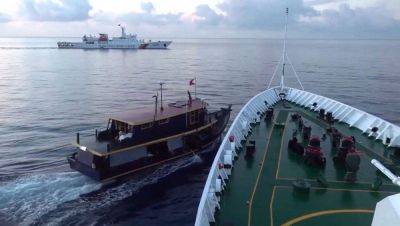UP experts discover fossil gastropods in Masungi
MANILA, Philippines — Experts from the University of the Philippines National Institute of Geological Sciences (UP-NIGS) on Friday said that the fossils of gastropods discovered in Masungi Georeserve’s limestones in Baras, Rizal could be the “first and oldest” fossil record of its kind in the country.
UP-NIGS explained that gastropod is a class of mollusks that includes snails and slugs and is one of the few animal groups that have thrived in all three primary habitats: ocean, freshwater and land.
The presence of these fossilized gastropods indicates how the Masungi landscape was submerged about 60 million years ago.
The researchers who made the discovery were Allan Gil Fernando, Alyssa Peleo-Alampay, Leopoldo de Silva Jr. and Joaquin Miguel Lacson.
The significance of their find was recognized by a Japanese malacologist, an expert specializing in the study of mollusks, who has done extensive work on fossil mollusks in the Philippines.
The recent discovery underscores the importance of protecting the limestone formations which are located between the Upper Marikina Watershed and Kaliwa Watershed, as well as within the National Park created through Presidential Proclamation 1636 in 1977.
“The Masungi Georeserve as a living laboratory for the study and protection of karst terrains represents a unique opportunity for the national and local governments, the academe and industry partners to come together to develop best practices in the management, protection and conservation of this important fragile and non-renewable resource,” the researchers said.
The research in July 2023 also found traces and fossilized remains of marine protists (foraminifera) embedded in the rocks.
The UP-NIGS researchers are expected to do a follow-up field investigation within the year to further examine the fossils, determine their exact age and to prove if this could indeed be the first and oldest fossil record of this type of mollusk in the country.







